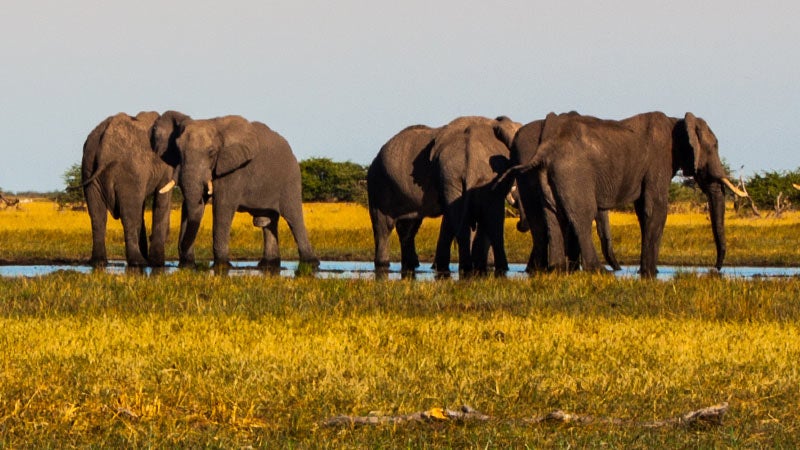Aspen-AWF Dialogue on African Wildlife Conservation
Aspen – AWF Dialogue on African Wildlife Conservation
For African wildlife conservation to be successful, African leadership must adopt an attainable continental goal for wildlife populations below which is unacceptable.
DONATE HERE
The Aspen Institute and African Wildlife Foundation (AWF) are working to build leadership and action on conservation in Africa. The wildlife and wildlands of Africa are essential to ecosystem health, cultural and natural heritage, and the economy of Africa. Despite the value of these resources, they are critically undervalued and criminally exploited. Over the last decades and centuries, African wildlife populations and wildlands have been destroyed or critically damaged as a result of illegal wildlife poaching, human encroachment and destruction of wildlands, and climate change. In 1979, there were an estimated 1.3 million elephants in Africa. In 2018, there are only about 400,000. In the past century, African lions have decreased from 200,000 to 20,000. Black rhinos are critically endangered, declining from 65,000 in 1970 to around 5,400 today. And on March 19, 2018, the last male northern white rhino, Sudan, died at the age of 45. This last example illustrates why declining wild animal populations in Africa can no longer be ignored.
For the past four years, the Aspen Institute Energy and Environment Program has been working with the African Wildlife Foundation (AWF) to foster leadership and bolster wildlife and wildlands conservation efforts in Africa related to Chinese overseas investment through the China-Africa Wildlife Conservation Council (CAWCC) and China-Africa Dialogue. As an extension of this work, and to promote wildlife and wildlands conservation ambition on the African continent, AWF and the Aspen Institute are launching the Year 2000 (or Y2K) Wildlife Population Initiative, a campaign aimed at returning key wildlife populations and wildlands to their year 2000 states. The cornerstone of this initiative will be the development of specific, Africa-wide Y2K principles and objectives, prompting debate and action on the value of wildlife to the African continent as a whole and establishing a necessary starting point from which to measure progress.
For opportunities to support this important work, please contact energyandenvironment@aspeninstitute.org or donate now.






